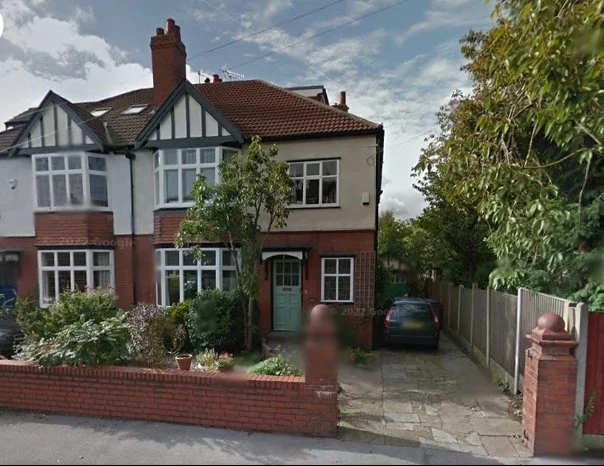AIDS: THE LOST VOICES
Those affected or infected with HIV/AIDS have often faced ostracism from friends, family, and workplaces, casting a shadow over their already challenging circumstances. The experiences of four men—Andrew Peters, Michael Buck, Andrew Fay, and David Morgan—highlight the grim realities of discrimination during the height of the AIDS crisis.
Peters was dismissed from his position as a restaurant manager simply for allowing a television crew to film a segment in his establishment, aiming to raise awareness about the pandemic. Buck, a cinema projectionist with 17 years of service, was let go solely due to his sexual orientation, as his colleagues and employer unfoundedly feared he might be HIV positive.
Fay, employed by London Lighthouse, faced similar repercussions as he was fired for struggling to meet work demands after his AIDS diagnosis. Lastly, Morgan was dismissed for being “overtly” gay, with his employer even disclosing his HIV status. In the face of adversity, all four men took courageous steps to challenge their employers legally, confronting the pervasive fear and prejudice surrounding HIV/AIDS.
Click to Read (Opens in New Window)
Hugh ‘Andrew’ Fay was born on 20th May 1955 in Stockport, Manchester, to Dr Hugh Thomas Fay and Doreen Simpson, who resided at 2 Cavendish Road. Unlike his younger brother, Peter John Fay, and their father Hugh Thomas, Andrew pursued a different path and did not follow the family tradition of medicine established by his father and grandfather, Hugh Patrick Fay. Instead, he forged his own identity outside of the medical profession, shaping a life that diverged from the expectations placed upon him by his family's legacy.
Childhood Home
In 1973, while studying at Nottingham University, Andrew embarked on a journey in a converted Bedford van that would forever alter the course of his life. Tragically, the van was involved in a catastrophic crash, claiming the lives of three of the nine passengers aboard, leaving Andrew as one of the fortunate survivors. By 1979, Andrew had settled into a new chapter of life living on Kingdom Road in Hampstead, within the London borough of Camden.
As Andrew turned thirty-two in 1987, he faced the harsh reality of being diagnosed with AIDS, a condition that, at the time, was seen as a guaranteed death sentence. The diagnosis brought with it not only fear but also a desperate hope shared by many within the gay community, as the recently introduced drug AZT offered a glimmer of possibility for treatment. However, as time would reveal, AZT ultimately proved to be of limited efficacy, leaving countless individuals like Andrew grappling with the uncertainty of their futures amidst a backdrop of stigma and loss.
APPLIED: The Guardian, 6 June 1989
In 1989, Andrew took a position as the Publications & Information Officer at the London Lighthouse, a pioneering hospice for individuals living with HIV/AIDS, which also housed patients nearing the end of their lives. Ironically, the very treatment he was undergoing had severe side effects, including the necessity for frequent blood transfusions, causing him to fall behind in his responsibilities.
Despite the organisation's commitment to hiring people with HIV/AIDS, Andrew's struggle with his health led to his dismissal after falling behind by a week or two in hos work. Although the management committee, which included members from the National AIDS Trust and the House of Commons, recommended his reinstatement, Christopher Spence, the director, overruled their decision, ultimately choosing to dismiss Andrew, highlighting the ongoing stigma and systemic issues that plagued the fight against the virus and its societal perceptions at that time.
Michael Buck remains a somewhat elusive figure despite making headlines in 1988 following his victory against wrongful dismissal by his employer of 17 years, Letchworth Palace Cinema.
Born in 1942 Michael dedicated much of his life to the craft of cinema projection, with his early career as projectionist at the Strand Cinema on the Isle of Man before relocating to the Letchworth Palace Cinema in late 1969.
After his high-profile legal battle, which garnered significant media attention, he briefly struggled to find work after relocating to Harrogate, North Yorkshire. Then in 2000 he writes to the Lancashire Telegraph having been victim of a pickpocket where Michael wrote:
“Not knowing until I got half way home, my HSBC bank card was in my wallet along with some sentimental cards.
Also in there was my tramways of York clubcard and my BECTV cinema projectionist union card. Having been a cinema projectionist for well over 45 years this is quite upsetting.
I don't think I will ever see them again, but if somebody has or finds them I would be very grateful for the return.
LETCHWORTH: Palace Cinema (Now demolished)
At the time of publication he gives his address as Blackpool. But in a later publication in the Bolton News on the 3rd March 2007 he gives his address as Manchester while sharing the Art Deco design of some Odeon cinemas has been lost:
“Not many people know that Odeon stood for Oscar Deuch Entertains Our Nation, and there are not many of these art deco buildings around.
Most have gone, or closed and been boarded up, like the Odeon Manchester, Odeon Barnsley, and Odeon York, where I worked as a cinema projectionist until it closed in August 2006. I worked for 50 years as a projectionist, but nowadays it's the massive multiplex cinemas - just like warehouses, not like the old Odeons”
Through these little snippets of insight, we learned that after leaving Letchworth for Harrogate, Michael initially struggled to find work but eventually resumed his role as a cinema projectionist at the York Odeon until its closure in 2006. During his time at the Odeon, he became a familiar presence, weaving magic through the flickering screens for countless moviegoers. However, following the cinema’s closure, he faced another transition, moving to Blackpool in search of new opportunities, perhaps even retirement. Eventually, he settled in Manchester, where he continued to cherish his love for film until his sad passing in early 2010 at the age of 67, leaving behind a legacy marked by his dedication to the art of cinema.
Michael Buck, though not living with HIV or AIDS, made a significant impact by standing up to his employers and taking them to court, emerging victorious. His actions not only championed gay rights but also set a precedent for the rights of all individuals in employment, regardless of their health status concerning HIV/AIDS. Michael left behind a legacy steeped in both celebration and mystery, reflecting the ongoing struggle for equality and acceptance within society.
Michael Buck, we salute you!
David Morgan has proven difficult to trace, with records indicating he was born around 1958 and spent his early years in Ilford, London. Despite his claims of Irish origins, the name 'David Morgan' is remarkably common, complicating any attempts to identify the individual in question.
Known for his letters to the local newspaper regarding political matters, particularly concerning the Labour Party, he was a regular contributor who expressed his views with clarity and passion. His final appearance in print occurred in May 2002, after which there appears to be a complete absence of any information, leaving his whereabouts and activities shrouded in uncertainty.
But there is no escaping David Morgan's courage and determination to be victorious in his claim against his employer's wrongful dismissal for merely being gay and for living with HIV. His journey is a testament to resilience; it is shocking that he lost his home and car in the process, yet he persevered and emerged on the other side. David Morgan has paved the way for gay rights in the workplace, emphasising that individuals living with HIV/AIDS possess the same right to employment without suffering from discrimination as anyone else. His dedication serves as a powerful reminder that the fight for equality and recognition continues, inspiring others to stand firm against injustice.
Truly, an inspiration!






































